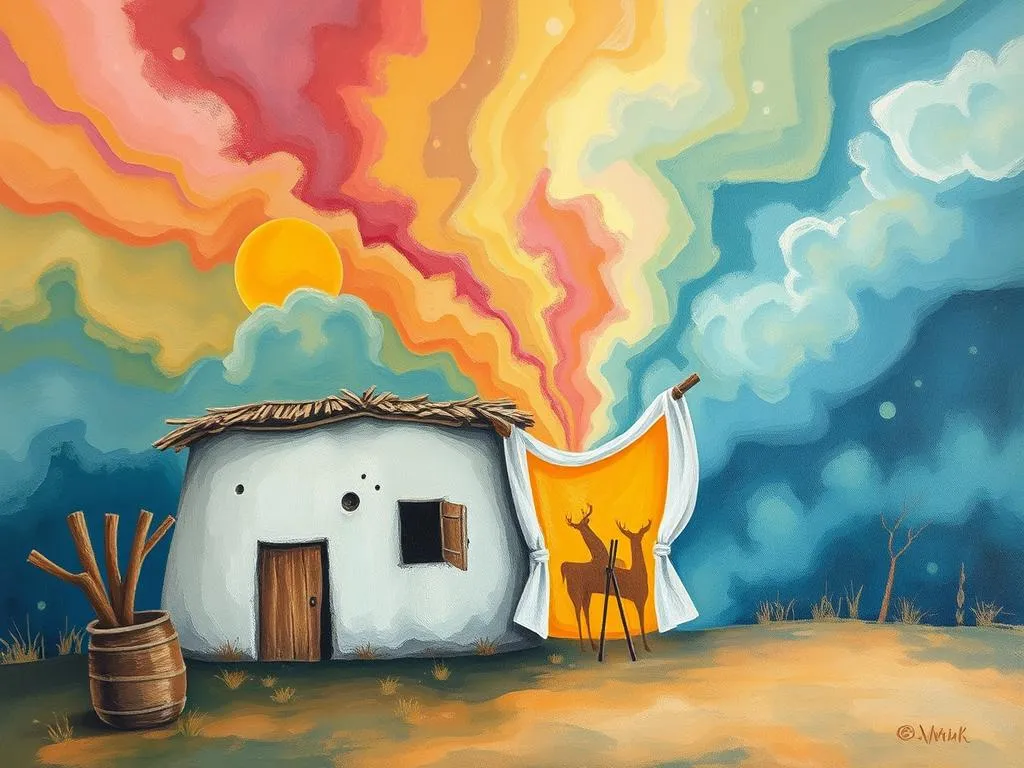
Introduction
Dreams have long fascinated humanity, serving as windows into our subconscious minds. Among the myriad themes that appear in our nightly narratives, the image of a poor village stands out as particularly poignant. This dream symbol resonates with a range of emotions and reflections, revealing deep-seated fears, aspirations, and societal critiques. The dream of a poor village invites us to explore the significance of economic hardship, community dynamics, and personal values, making it an intriguing subject for interpretation.
In a world where material wealth often dictates social status, dreaming of a poor village can evoke feelings of empathy, nostalgia, or even shame. It raises questions about our values and priorities in life. Why do certain dreamers find themselves wandering through impoverished landscapes? What do these dreams reveal about their waking lives? In this article, we will delve into the symbolism and meanings behind the dream of a poor village, explore various scenarios, and offer insights on how to connect these dreams to real-life situations.
Symbolism and Meaning
At the heart of the dream symbol of a poor village lies a tapestry of complex emotions and social commentary. The village itself often represents a sense of community, belonging, and collective experience. However, when depicted as poor or dilapidated, it can symbolize feelings of isolation, struggle, or lack in one’s life.
-
Community and Belonging: The poor village can evoke a sense of shared experience among its inhabitants, suggesting a longing for connection or community. It might reflect the dreamer’s desire to belong or the realization that they are currently feeling disconnected from their social circles.
-
Economic Struggles: A poor village often serves as a stark reminder of economic hardship. Dreaming of such a place may indicate that the dreamer is grappling with their financial situation or fears about their future stability. It may be a manifestation of anxiety regarding job security, bills, or the pressures of modern living.
-
Nostalgia and Simplicity: For some, a poor village can evoke a sense of nostalgia for simpler times, where life was less complicated, and people relied on one another for support. This perspective invites reflection on values and priorities, suggesting that the dreamer might be seeking a return to a more fulfilling lifestyle, away from materialism.
-
Confronting Inner Conflict: The poor village may also symbolize the dreamer’s internal struggles. It can represent feelings of inadequacy, failure, or guilt about one’s own privileges. A subconscious critique of societal structures may emerge, prompting the dreamer to examine their own relationship with wealth and success.
-
Cultural and Societal Reflections: Additionally, the poor village can serve as a metaphor for societal issues, such as inequality or neglect. It reflects the dreamer’s awareness of global challenges and may signal a desire to contribute positively to the world around them.
As we explore the meanings behind this dream symbol, it becomes evident that the poor village encapsulates a multitude of perspectives, each reflecting the dreamer’s personal circumstances and emotional landscape.
Key Scenarios and Variations
The dream of a poor village can take on various forms, each with its unique nuances and interpretations. Understanding these variations can provide deeper insights into the dreamer’s psyche and current life situations.
-
Exploring the Village: If the dreamer finds themselves wandering through the village, interacting with its inhabitants, this may signify a journey of self-discovery or an exploration of one’s roots. Such dreams often encourage the dreamer to engage with their heritage or reconnect with lost aspects of themselves.
-
Feeling Trapped: Alternatively, if the dreamer feels trapped in the poor village, this may reflect feelings of entrapment in their waking life. They might be experiencing a sense of hopelessness or a lack of options in their current situation. This scenario often calls for an examination of life choices and the courage to seek change.
-
Helping the Inhabitants: Dreaming of assisting the villagers, perhaps by providing resources or support, can signify a desire to make a positive impact in the world. It may reflect the dreamer’s values of altruism and compassion, suggesting a need for action in their waking life to help those in need.
-
Witnessing Poverty: If the dreamer is merely a spectator, observing the struggles of the villagers without engaging, this could indicate feelings of powerlessness or guilt. Such dreams may prompt the dreamer to reflect on their role in society and whether they are doing enough to address issues of inequality or suffering.
-
Contrasting Wealth and Poverty: In some scenarios, the dreamer may find themselves in a juxtaposition between wealth and the poor village. This contrast can highlight feelings of inadequacy or questions about the fairness of their own circumstances. It might encourage the dreamer to explore what true wealth means to them, beyond material possessions.
These variations in the dream narrative reveal how different scenarios can shift the focus of interpretation, providing valuable insights into the dreamer’s emotional state and life challenges.
Real-Life Connections and Takeaways
Dreams about poor villages are not merely abstract reflections; they often resonate deeply with our waking lives. By examining these dreams and their meanings, readers can gain invaluable insights that may lead to personal growth and self-awareness.
One of the first steps in connecting these dreams to real-life situations is through self-reflection. Consider the emotions felt during the dream. Were you anxious, nostalgic, or empowered? Such feelings can reveal underlying concerns or desires in your waking life. For instance, if you felt trapped in the poor village, it may be a signal to evaluate your current circumstances and identify areas where you feel limited.
Additionally, take note of the actions taken within the dream. Were you helping others, exploring, or merely observing? Each action can provide clues about your values and priorities. If you found yourself aiding the villagers, this may reflect a desire to contribute positively to your community. In contrast, if you were simply watching without engaging, it may indicate feelings of guilt or helplessness regarding social issues.
Moreover, consider how societal themes reflected in the dream resonate with your own experiences. Are you aware of economic inequalities in your community? Are there particular social issues that resonate with you? Engaging with these questions can lead to a deeper understanding of your place in the world and inspire action.
Practical advice for self-reflection includes journaling about your dreams and exploring your feelings around the themes presented. Ask yourself what aspects of the poor village resonate with your own life. Are there areas where you feel disconnected, overwhelmed, or unfulfilled? Use this exploration as an opportunity to set intentions for change or growth in your waking life.
Ultimately, the dream of a poor village serves as a potent reminder of the interconnectedness of our lives and the world around us. It calls on us to reflect on our values, confront our fears, and take action toward creating a better future—not only for ourselves but for others as well.
In conclusion, the dream symbol of a poor village encapsulates a wealth of meanings and interpretations. By exploring its symbolism, variations, and real-life connections, we can gain a deeper understanding of ourselves and our place in the world. As you reflect on your dreams, remember to embrace the insights they offer and allow them to guide you on your journey toward self-discovery and growth.







